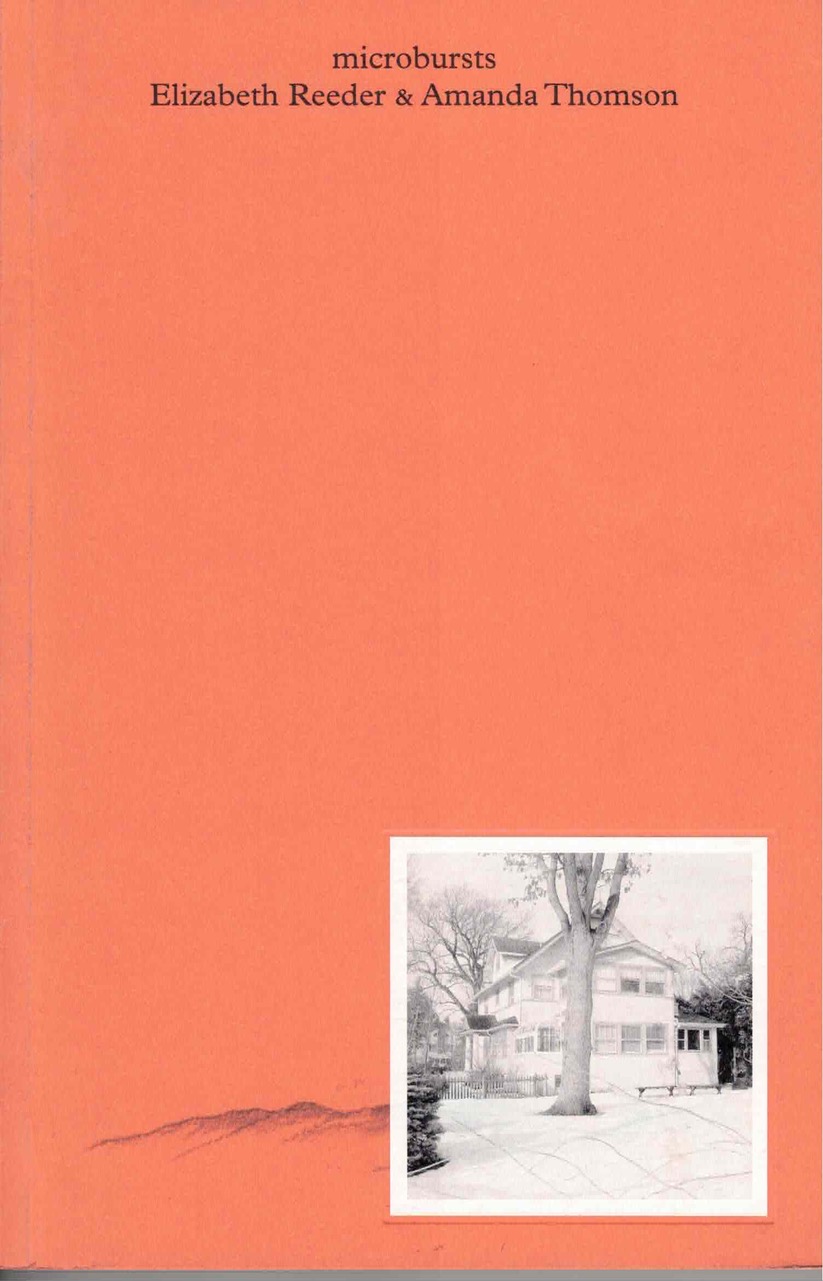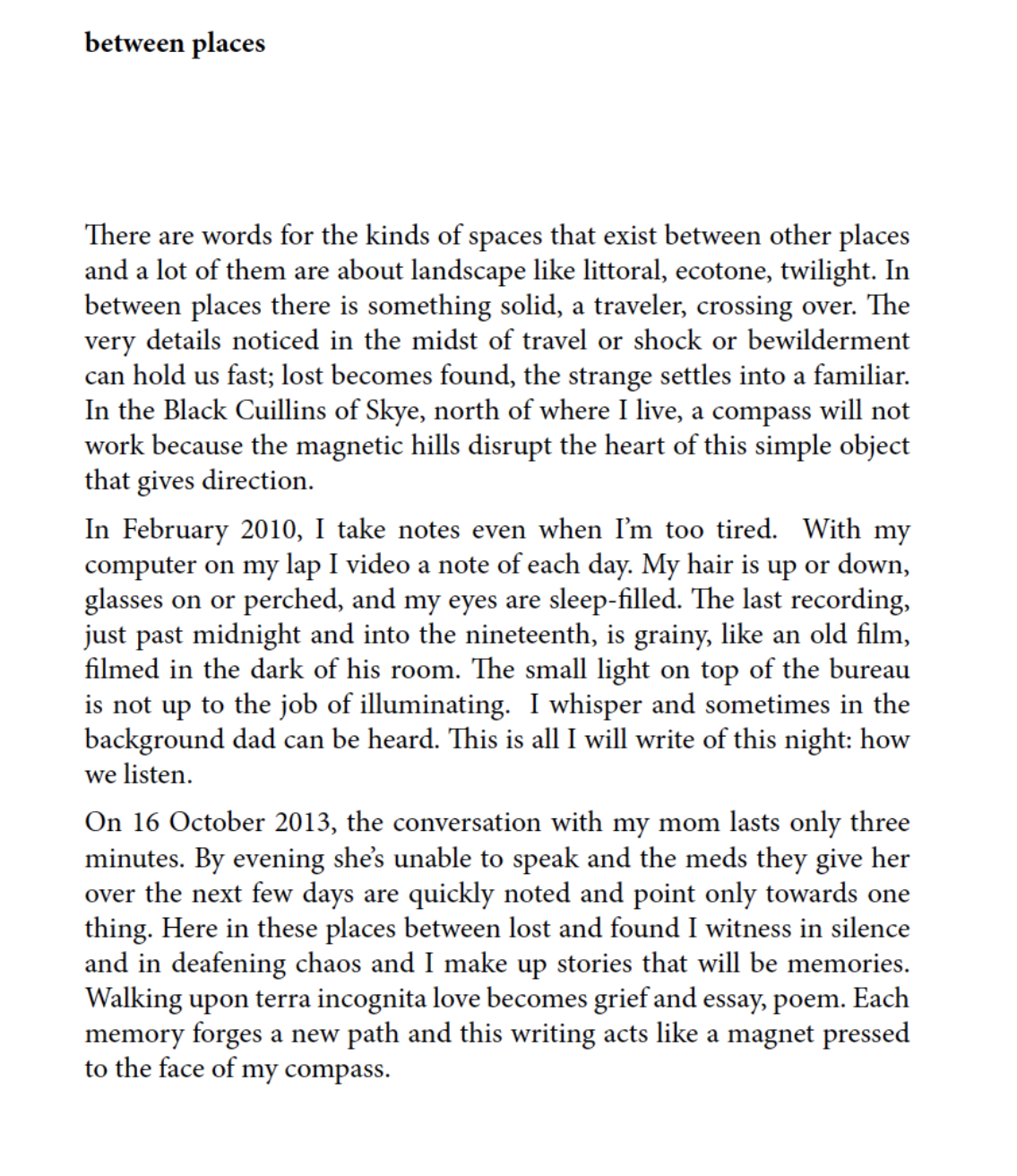DeathWrites Blog
Elizabeth Reeder: Taking Note I: the mess | 28 April 2024
Writer Elizabeth Reeder reflects on how the process of taking notes informs writing on dying, death and grief.
There’s an intensity to writing about death and dying. Perhaps it comes from the intimacy and immediacy bound to the precarity of end of life. Perhaps the pressured, ever-present sharp space of grief makes everything more acute.
As DeathWrites, a network of writers, we recognised that keeping a diary of events or otherwise recording them is often a way for us to ground ourselves when the earth is shifting so quickly and suddenly and unpredictably around us. Many of us use writing to record and process the world and its intensities, and beyond this, these notes become the basis, the raw texts, for what we might make and share with the world.
Over twelve years, I attempted to support three people during terminal illnesses. They were, each in their own way, messy situations. I mean complicated and brilliant and impossible; I mean intricate with overlapping illnesses and pain and foreign cells and too much of one thing and not enough of another; the navigating of and with a collocation of people: doctors and nurses and family and resentful family and administrators needing forms signed; it’s navigating punctured tyres and nonsensical hospital parking lots while deep in stress, and always leaving whatever is needed at home or at the hospital and the to or from and to and and... Messy.
As DeathWrites, a network of writers, we recognised that keeping a diary of events or otherwise recording them is often a way for us to ground ourselves when the earth is shifting so quickly and suddenly and unpredictably around us. Many of us use writing to record and process the world and its intensities, and beyond this, these notes become the basis, the raw texts, for what we might make and share with the world.
Over twelve years, I attempted to support three people during terminal illnesses. They were, each in their own way, messy situations. I mean complicated and brilliant and impossible; I mean intricate with overlapping illnesses and pain and foreign cells and too much of one thing and not enough of another; the navigating of and with a collocation of people: doctors and nurses and family and resentful family and administrators needing forms signed; it’s navigating punctured tyres and nonsensical hospital parking lots while deep in stress, and always leaving whatever is needed at home or at the hospital and the to or from and to and and... Messy.

For most of us, this writing we do on death and dying is, at least partially, personal, and so the process contains complex questions of what to share of those experiences and of others. It is also a grappling with how much of ourselves to share. We question how to ground a piece in our experience but not make it narcissistic. Perhaps we have this little voice in our head saying that what we’re writing about is depressing (and who wants to read that) and we all know the easily slung, ‘misery memoir’ slur that’s out there for any of us to use as a type of self-sabotage.
To write these things is to revisit this time and place and feelings again and again. It can be a place of solace, remembering, and reflection. And sometimes writing and editing act as thin, sharp knives pressed to places that remain vulnerable.
Often the intensity we write comes from the notes we take in the midst of our experiences: diaries, photographs, audio recordings of conversations, videos, articles bookmarked and shared, research done late at night to try to better understand the situation and your place and role within it. We record this fraughtness in language that often fragments and fails us, and it’s often in this broken state of language that — when we reflect on it, go through and curate or pull gems from it — we find new words and forms to communicate this often confounding space of dying.
To write these things is to offer them to others, and many of us will know that reading about illness, dying, death and grief is often grounding even as it’s upsetting, tender even as it’s raw, needed even as it’s difficult to take it all in, joyful even as it agitates a loss.
We send what is written into the world knowing that reading creates connection and communities across time and distance.
I made notes throughout the illnesses of my parents. These original notes became part of my Creative Writing doctorate and that document, much edited (and with a brilliant design collaboration with Amanda Thomson) became microbursts (Prototype). The final book is succinct and crafted and it grounded me to make it so when grief was gappy and messy within me.
We send what is written into the world knowing that reading creates connection and communities across time and distance.
I made notes throughout the illnesses of my parents. These original notes became part of my Creative Writing doctorate and that document, much edited (and with a brilliant design collaboration with Amanda Thomson) became microbursts (Prototype). The final book is succinct and crafted and it grounded me to make it so when grief was gappy and messy within me.

Excerpt from microbursts
Elizabeth K Reeder writes fiction and hybrid forms. microbursts (Prototype 2021) is a collection of cross-genre, inter-medial essays on illness, living grief, death, dying, creativity. The book is a collaboration with Dr Amanda Thomson. An Archive of Happiness, a novel, (Penned in the Margins 2020) is a polyphonic archive of a family in a time of crisis. Reeder is a senior lecturer in Creative Writing at University of Glasgow.



